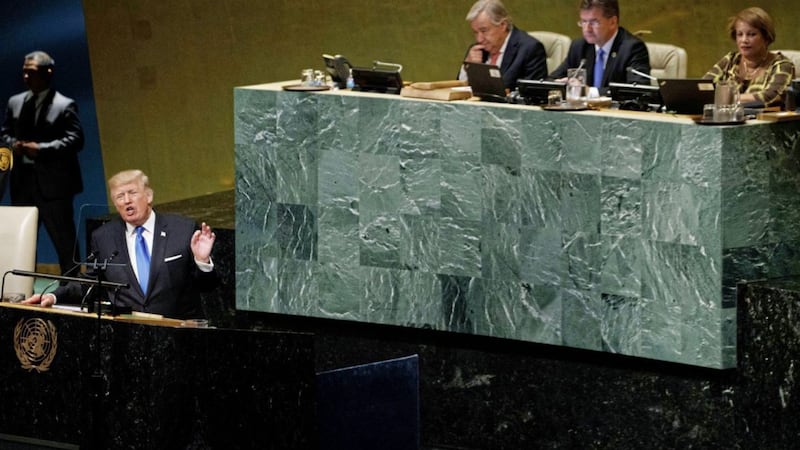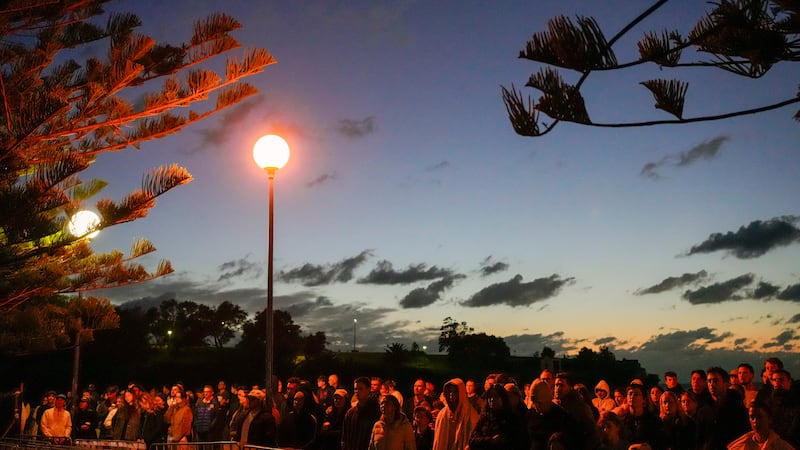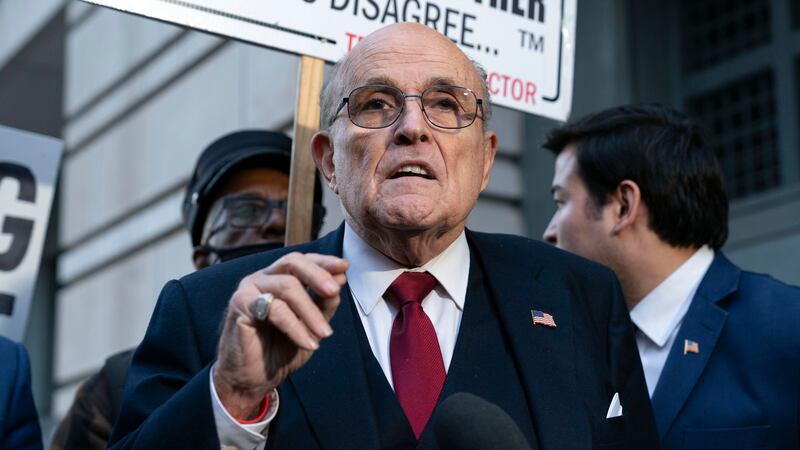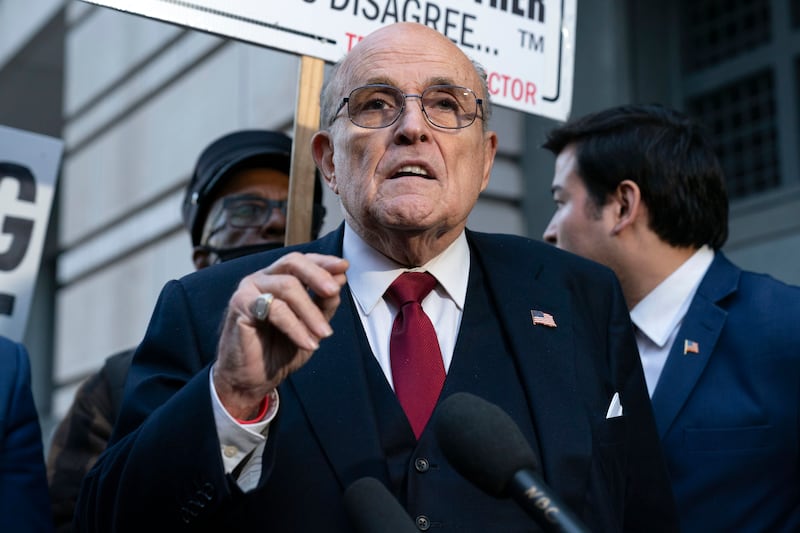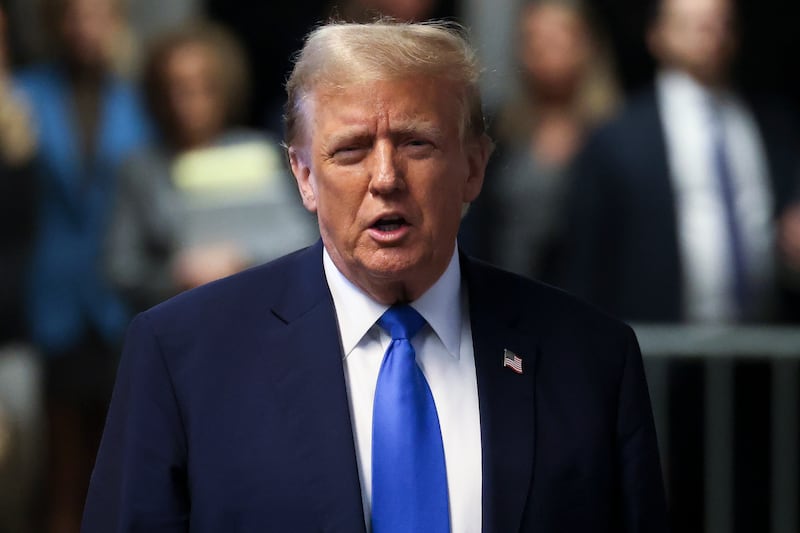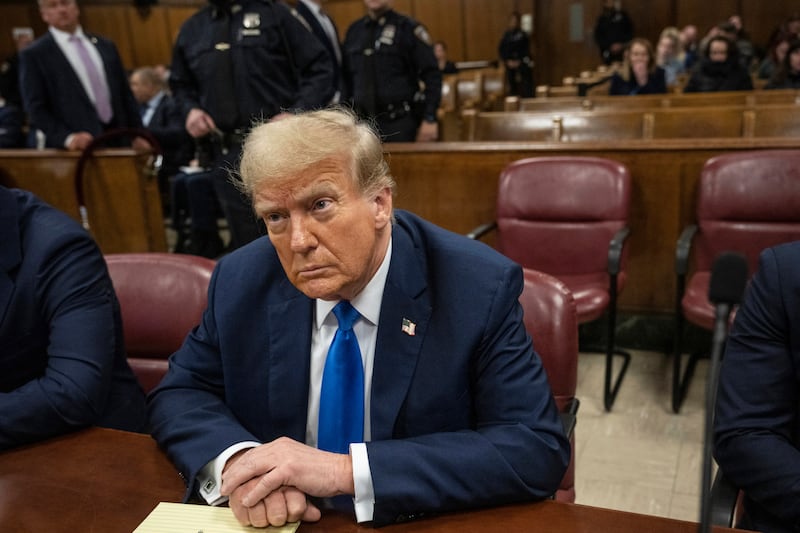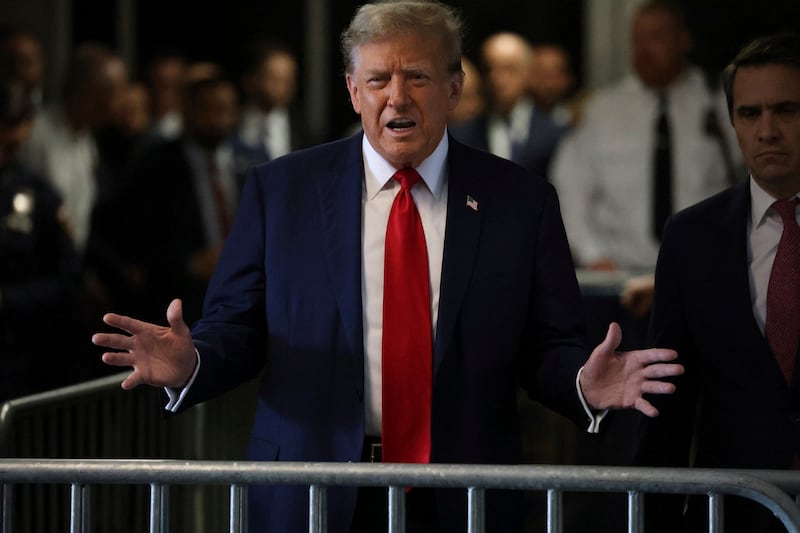PRESIDENT Donald Trump, in a combative debut speech to the UN general assembly, threatened the total destruction of North Korea if it does not abandon its drive toward nuclear weapons.
Mr Trump, who has ramped up his rhetoric throughout the escalating crisis with North Korea, told the murmuring crowd at the UN that "it is far past time for the nations of the world to confront" Kim Jong Un and said Mr Kim's "reckless pursuit of nuclear weapons" poses a threat to "the entire world with an unthinkable loss of human life".
"Rocket man is on a suicide mission for himself and his regime," Mr Trump said about the North Korean leader.
He said of the US: "If it is forced to defend itself or its allies, we will have no choice but to totally destroy North Korea."
Mr Trump, who has previously warned of "fire and fury" if Pyongyang does not back down, claimed "no-one has shown more contempt for other nations and for the wellbeing of their own people than the depraved regime in North Korea".
And he scolded nations that he said have enabled and traded with North Korea, seeming to slight China, though he did not mention it by name.
Elected on the nationalist slogan America First, Mr Trump argued that individual nations should act in their own self-interest, yet rally together when faced with a common threat.
In addition to North Korea, Mr Trump urged nations to join together to stop Iran's nuclear programme.
He declared the Iran nuclear deal an "embarrassment" for the US.
He also condemned the "loser terrorists" who have committed violence across the globe.
Addressing the general assembly is a milestone moment for any president, but one particularly significant for Mr Trump, a relative newcomer to foreign policy who has at times rattled the international community with his unpredictability.
He has pulled the US out of multinational agreements, considered shrinking the US military footprint in the world and deployed bombastic language on North Korea that has been criticised by other world leaders.
Mr Trump frequently belittled the UN as a candidate and some within his White House believe the UN acts as a global bureaucracy that infringes on the sovereignty of individual countries.
But the president stood before world leaders and a global audience and declared that UN members, acting as a collection of self-interested nations, should unite to confront global dangers.
"I will always put American first. Just like you, the leaders of your countries, should and always put your countries first," said Mr Trump, who assured the UN that the US would not abdicate its leadership position in the world but needed other countries to contribute more.
"The US will forever be a great friend to the world and especially to its allies," the Republican president said.
"But we can no longer be taken advantage of or enter into a one-sided deal in which the United States gets nothing in return."
World leaders, many of whom will be seeing Mr Trump in person for the first time, are bound to take the measure of the man and study his every word for clues on how he views the US role in the world and within the UN.
While running for office, Mr Trump had labelled the UN weak and incompetent.
He has suggested it was "not a friend" to the United States or democracy while deriding it as "a club for people to get together, talk and have a good time".
He thundered often about putting "America first", and has withdrawn from what he considered multilateral agreements that he found unfavourable to the United States, such as the Trans-Pacific Partnership trade deal.
He also announced his intention to withdraw from the Paris climate accord, which would leave the US one of only three countries outside the pact.
Aides have since suggested Mr Trump would be willing to renegotiate terms of the deal but European leaders have dismissed that approach.
Mr Trump has also frequently questioned the value of a robust American presence around the world.
When briefed on the government's diplomatic, military and intelligence posts, the new president would often cast doubt on the need for all the resources.
Some aides have suggested that Mr Trump employs "principled realism", making global decisions based on the best outcome for the United States.
The administration has also shied away from talk of nation-building or creating democracies through the use of the US military.
But Mr Trump has softened his rhetoric about the United Nations since taking office and cheered the recent Security Council resolution that approved new sanctions against North Korea.
